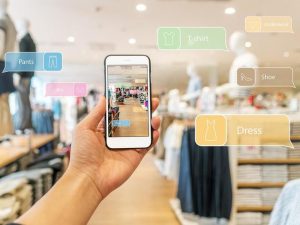Big Tech sees social commerce as an opportunity for the future of online retail

Khevna.P.Shah, INN/Bangalore
@Shahkhevna1, @Infodeaofficial
Followed by Facebook Inc., social media platforms from Alphabet Inc.’s YouTube to Snap Inc. and Twitter Inc. are investing heavily in shopping features to increase revenue growth, a major theme that emerged during second-quarter results over the past few weeks.

The companies are competing for a piece of the so-called social commerce industry, which relies on users’ ability to discover and buy products through social media apps and is expected to rise to $50 billion from $36 billion in annual sales by 2023 in the US according to research firm eMarketer.
The success of social commerce stems in part from product targeting based on user interests, with sales generating more data that can be used for future advertising and merchandise placements.
Facebook, which is widely considered as the forefront in social commerce, and Google which helped retailers bring in sales in the last quarter, with e-commerce players, like Shopify, saying the growth rate of products sold through the two tech companies’ platforms was “several times that” of websites run by the merchants themselves.
Facebook CEO Mark Zuckerberg said that enabling commerce and making it easier for businesses to communicate with customers through its Messenger and WhatsApp apps was “the right long-term bet”.
Retailers are increasingly prancing on to the trend as Covid-19 restrictions weigh on consumer-business sales.
Brands ranging from luxury fashion house Burberry to fast fashion giant H&M have signed up celebrities and influencers to get millions of their followers to make purchases from their momentary stories or posts by asking them to “swipe up to purchase”.
While the business is still in the initial stage, the social media giants are eyeing the data generated from users’ shopping and browsing history habits for targeted advertising. The scramble for user data has become even more crucial as recent privacy changes from Apple Inc limit tech companies’ ability to track iPhone users and serve personalized advertising, ad experts revealed.
But what is the future of commerce?
Facebook launched Shops in May 2020 during the peak of the pandemic, luring brands with a convenient way to sell items directly through Facebook and Instagram and consumers with a curated and personalized way to discover trendy clothes, home goods, kitchen accessories, and other endless merchandise.
According to a survey conducted by eMarketer, Facebook was the top social commerce platform in June 2020, with 18% of respondents saying they had purchased merchandise via Facebook, When compared with 11% from Facebook-owned Instagram and only 3% from Pinterest.
Even as restrictions are relaxed, analysts say the demand for shopping online is unlikely to retreat. It is because the customers get fantastic deals, numerous options, and a very convenient yet safe way to shop. Besides wearing masks, online shopping from social media has become a new normal. It is also an inexpensive strategy for entrepreneurs to use social media as their base for business.
“People have gotten accustomed to buying online,” said Edward Jones analyst Dave Heger. “I don’t think that they’re going to go completely back to the level they were at before in terms of purchasing at brick and mortar stores,” was added by the analyst.
Snap Inc. is investing in augmented reality technology designed to help users virtually try on items like watches, jewelry, and other accessories to cut down on returns, a major drawback faced by online retailers.
Snapchat users can take a photo of a friend’s outfit with the app and can find similar looks or product recommendations, said Snap Chief Executive Evan Spiegel last week during the company’s earnings conference call.
“The holy grail of advertising is to actually sell merchandise,” said Rich Greenfield, a partner at LightShed Partners, in a note on Snap last week. “While these initiatives are still in the early stages, we believe an increasing number of brands want to be associated with where commerce is headed,” he added.
The popular short-form video app TikTok is testing live-streamed shopping with selected brands in the UK, allowing the users to purchase clothes as an influencer model the item in real-time during a live video.
Twitter, a platform most known for following breaking news or current events, said recently that it will begin testing a shopping feature that lets the users browse items for sale at the top of a brand’s profile page.
YouTube, mostly known for “unboxing” videos in which YouTubers review toys or tech gadgets, wants to integrate shopping directly into the platform, said Google’s Chief Business Officer Philipp Schindler on Alphabet’s earnings call on Tuesday.




